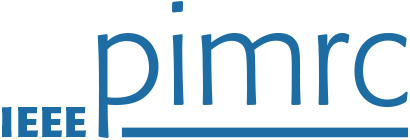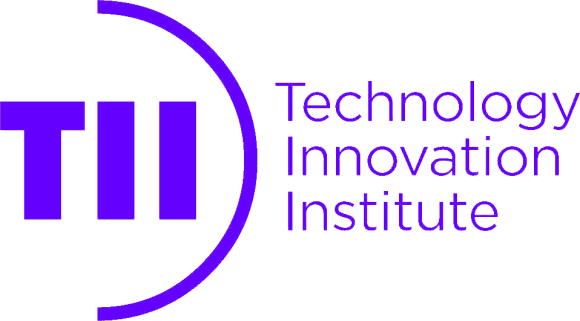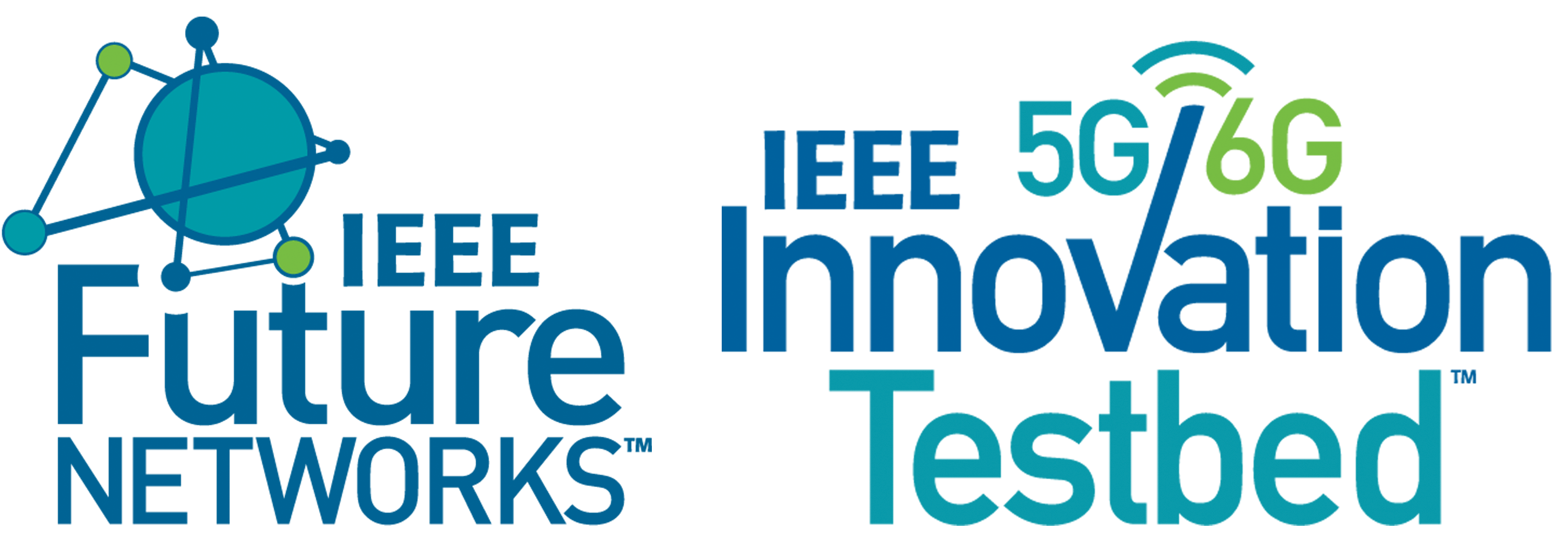Day: Tuesday, 05 September
Time: 9:00 – 17:30
Room: Harbour B
Tentative Program Details below:
| 09:00 – 09:05 | Welcome speech |
| 09:05 – 09:50 | Keynote 1: Halim Yanikomeroglu, Carleton University, Canada |
| 09:50 – 10:30 | Keynote 2: Symeon Chatzinotas, University of Luxembourg, Luxembourg |
| 10:30 – 11:00 | Coffee break |
| 11:00 – 12:30 | Session papers (5 papers on routing, architecture, antenna, etc., including 1 invited at the end) |
| 12:30 – 14:00 | Lunch break |
| 14:00 – 14:45 | Keynote 3: Andreas Knopp, Munich University of the Bundeswehr, Germany |
| 14:45 – 15:25 | Keynote 4: Zak Kassas, The Ohio State University, USA |
| 15:30 – 16:00 | Coffee break |
| 16:00 – 17:48 | Session papers (6 papers on co-existence, precoding, swarm, waveform, including 1 invited at the end) |
| 17:48 – 17:50 | Closing speech |
Session #1
Keynote 1: Halim Yanikomeroglu, Carleton University, Canada
Title: “Next-After-Next Generation NTN Architecture for Ultra-Connected World 2040”
Abstract: Ultra-connectivity is more than broadband connectivity; the framework includes connectivity, computing, edge intelligence, surveillance, security, sensing, monitoring, positioning, localization, navigation, and more. The humanity will demonstrate its full potential in every dimension (economic prosperity, wellbeing, equal opportunity, environmental, and more), when the communities get ultra-connected with a sustainable, reliable, resilient, intelligent, green/clean/eco-friendly, secure, ubiquitous & affordable, and ultra high-speed “network of networks” with terrestrial (6G/7G) and non-terrestrial (space and stratospheric) components. This is the “ultra-connected world 2040” vision. The talk will contemplate on a novel next-after-next generation NTN (Non-Terrestrial Networks) architecture for realizing this vision.
Bio: Dr. Halim Yanikomeroglu has been with the Department Systems and Computer Engineering at Carleton University (Ottawa, Canada) since 1998, where he is currently a Chancellor’s Professor. He received the BSc degree from the Middle East Technical University (Turkiye) and the MASc & PhD degrees from the University of Toronto. His research interests cover many aspects of wireless communications and networks, with a special emphasis on non-terrestrial networks (NTN) in the recent years. He has given 110+ invited seminars, keynotes, panel talks, and tutorials in the last five years. He has supervised or hosted over 160 postgraduate researchers in his lab at Carleton. Dr. Yanikomeroglu has coauthored 600+ peer-reviewed research papers including close to 300 papers in 30 different IEEE journals. His extensive collaborative research with industry resulted in 39 granted patents. Dr. Yanikomeroglu is a Fellow of the IEEE, the Engineering Institute of Canada (EIC), and the Canadian Academy of Engineering (CAE). He is a Distinguished Speaker for the IEEE Communications Society and the IEEE Vehicular Technology Society, and an Expert Panelist of the Council of Canadian Academies (CCA).
Dr. Yanikomeroglu is currently serving as the Chair of the Steering Committee of IEEE’s flagship wireless event, Wireless Communications and Networking Conference (WCNC). He is also a member of the IEEE ComSoc Governance Council, IEEE ComSoc Globecom/ICC Management & Strategy (GIMS) Standing Committee, IEEE ComSoc Conference Council, and IEEE PIMRC Steering Committee. He served as the General Chair and Technical Program Chair of several IEEE conferences. He has also served in the editorial boards of various IEEE periodicals. Dr. Yanikomeroglu received several awards for his research, teaching, and service, including the IEEE ComSoc Satellite Communications Technical Recognition Award (2023), IEEE ComSoc Fred W. Ellersick Prize (2021), IEEE VTS Stuart Meyer Memorial Award (2020), and IEEE ComSoc Wireless Communications TC Recognition Award (2018). He received best paper awards at IEEE Competition on Non-Terrestrial Networks for B5G and 6G in 2022 (grand prize), IEEE ICC 2021, IEEE WISEE 2021 and 2022.
Keynote 2: Symeon Chatzinotas, University of Luxembourg, Luxembourg
Title: “Out of This World AI: Nurturing Intelligence in Non-Terrestrial Networks”
Abstract: Non-Terrestrial Networks are inherently designed to provide wide and in some cases global coverage. This unavoidably leads to massive communication systems in terms of satellites, terminals and links to be coordinated and optimized. This talk focuses on the potential of AI as a technological enabler for two main objectives: 1) reducing the computational complexity of large optimization problems for NTN orchestration, 2) reducing the power consumption of on-board operations in regenerative payloads. Promising use cases and recent results will be presented for each objective and future research directions will be discussed.
Bio: Symeon Chatzinotas (MEng, MSc, PhD, FIEEE) is currently Full Professor / Chief Scientist I and Head of the research group SIGCOM in the Interdisciplinary Centre for Security, Reliability and Trust, University of Luxembourg. In parallel, he is an Adjunct Professor in the Department of Electronic Systems, Norwegian University of Science and Technology and a Collaborating Scholar of the Institute of Informatics & Telecommunications, National Center for Scientific Research “Demokritos”.
In the past, he has lectured as Visiting Professor at the University of Parma, Italy and contributed in numerous R&D projects for the Institute of Telematics and Informatics, Center of Research and Technology Hellas and Mobile Communications Research Group, Center of Communication Systems Research, University of Surrey.
He has received the M.Eng. in Telecommunications from Aristotle University of Thessaloniki, Greece and the M.Sc. and Ph.D. in Electronic Engineering from University of Surrey, UK in 2003, 2006 and 2009 respectively.
He has authored more than 700 technical papers in refereed international journals, conferences and scientific books and has received numerous awards and recognitions, including the IEEE Fellowship and an IEEE Distinguished Contributions Award. He is currently in the editorial board of the IEEE Transactions on Communications, IEEE Open Journal of Vehicular Technology and the International Journal of Satellite Communications and Networking.
Session papers:
Fast Recovery From Multiple Link Failures in LEO Satellite Networks
Zunzheng Zhang, Kanglian Zhao, Wenfeng Li and Yuan Fang (Nanjing University, China)
Adaptive Online Service Function Chain Deployment in Large-Scale LEO Satellite Networks
Chang Han, Xi Li, Hong Ji and Heli Zhang (Beijing University of Posts and Telecommunications, China)
Opportunities and Limitations of Space-Air-Ground Integrated Network in 6G Systems
Ainur Daurembekova (University of Kaiserslautern-Landau (RPTU), Germany); Hans D. Schotten (University of Kaiserslautern, Germany)
A Sparse Algorithm for Planar Phased Array Antenna of LEO Satellites
Deyu Kong, Linyao Ma, Ziyi Zhao and Qing Guo (Harbin Institute of Technology, China)
Mitigation of Misalignment Error Over Inter-Satellite FSO Energy Harvesting (Invited Paper)
Baris Donmez and Irfan Azam (Polytechnique Montreal, Canada); Gunes Karabulut Karabulut Kurt (Ecole Polytechnique de Montreal, Canada)
Session #2
Keynote 3: Andreas Knopp, Munich University of the Bundeswehr, Germany
Title: “Distribution: a key enabler for future satellite systems”
Abstract: Latest developments in satellite systems have initiated a paradigm change that now gives non-terrestrial components a key role in future networks. However, to comply with the objectives of the ITU recommendation for IMT-2030, state-of-the-art solutions, mainly based on monolithic spacecrafts, will not be sufficient. Cutting-edge approaches exploiting the benefits of distributed architectures and the inherent distributed signal processing solutions are hence of central importance. In this keynote speech, sparse arrays realized with swarms of small satellites are identified as a promising technology to guarantee ubiquitous connectivity from space. On the other hand, distributed antenna architectures on ground can also help avoid bottlenecks in the feeder links design. Perspectives on the potential of these technologies are provided and open research challenges especially in the domain of distributed signal processing, synchronization and swarms formation-flying are highlighted.
Bio: Andreas KNOPP (MEng, MSc, PhD, MBA, SMIEEE) is a German professor of satellite communications technologies. Since 2015, he has been the Chair Holder of Signal Processing and the Director of the Munich Center of Space Communications research facility at the Bundeswehr University in Munich. In addition, he is now a chairperson of SPACE, the largest German interdisciplinary research center on space technologies. Prof. Knopp is an elected board member and senator of the German Aerospace Center (DLR), an advisor to the German Ministry of Defence, and a Visting professor of Naval Postgraduate School Monterey (CA), USA. Prof. Knopp has authored and co-authored 160 publications on radio systems and space communications technologies, including 50 journal publications and multiple patents. Moreover, he is serial entrepreneur and co-founder of several startup companies.
Keynote 4: Zak Kassas, The Ohio State University, USA
Title: “Ad Astra: Navigation with Megaconstellation LEO Satellites”
Abstract: We are witnessing a space renaissance. Tens of thousands of broadband low Earth orbit (LEO) satellites are expected to be launched by the end of this decade. These planned megaconstellations of LEO satellites along with existing constellations will shower the Earth with a plethora of signals of opportunity, diverse in frequency and direction. These signals could be exploited for navigation in the inevitable event that global navigation satellite system (GNSS) signals become unavailable (e.g., in deep urban canyons, under dense foliage, during unintentional interference, and intentional jamming) or untrustworthy (e.g., under malicious spoofing attacks).
This talk will overview the challenges associated with exploiting megaconstellation LEO satellites for navigation purposes, namely their unknown signals, poorly known ephemerides, loose synchronization and oscillator instability, and propagation effects. Next, a framework termed STAN: simultaneous tracking and navigation will be introduced to overcome these challenges. We will present an end-to-end approach, spanning theoretical modeling and analysis, specialized cognitive software-defined radio (SDR) design, practical navigation algorithms, and experimental demonstrations of STAN on ground and aerial vehicles, navigating with multi-constellation LEO satellite signals (Starlink, OneWeb, Orbcomm, and Iridium) to an unprecedented level of accuracy.
Bio: Dr. Zak (Zaher) Kassas is a Professor of Electrical & Computer Engineering The Ohio State. He is also Director of the U.S. Department of Transportation Center for Automated Vehicles Research with Multimodal AssurEd Navigation (CARMEN), focusing on navigation safety and resiliency for highly automated transportation systems. His research in autonomous navigation in GNSS-challenged environments received several awards, including National Science Foundation (NSF) CAREER Award, Office of Naval Research (ONR) Young Investigator Program Award, Air Force Office of Scientific Research (AFOSR) Young Investigator Award, IEEE Walter Fried Award, ION Burka Award, and ION Thurlow Award. He started his academic career in 2014 at the University of California, Riverside; then was an Associate Professor at University of California, Irvine; then was very early promoted to Full Professor and joined The Ohio State University in 2022. Since starting his academic career, his research has attracted more than $26 million in competitive federal grants from ONR, NSF, AFOSR, DOT, NIST, Sandia National Laboratories, among others. He is a Fellow of the Institute of Navigation and a Distinguished Lecturer of the IEEE Aerospace and Electronic Systems Society.
Session papers:
NGSO-To-GSO Satellite Interference Detection Based on Autoencoder
Almoatssimbillah Saifaldawla, Flor Ortiz, Eva Lagunas, Saed Daoud and Symeon Chatzinotas (University of Luxembourg, Luxembourg)
Downlink and Uplink Decoupling Access for NGEO Heterogeneous Satellite Networks with In-Line Interference Avoidance
Yilun Liu, Yujie Liu, Xiaoyan Kuai and Lidong Zhu (University of Electronic Science and Technology of China, China)
Performance Analysis of Orthogonal Time Frequency Space Modulation Under Time-Varying Doppler Channels
Kaiyuan Dong (Harbin Institute of Technology, China); Jun Shi (School of Electronics and Information Engineering, China); ZhenYong Wang (Harbin Institute of Technology & Shenzhen Academy of Aerospace Technology, China); Li Dezhi (Harbin Institute of Technology, China)
Optimally Conditioned Channel Matrices in Precoding Enabled Non-Terrestrial Networks
Jevgenij Krivochiza, Hongfu Chou, Juan Duncan and Symeon Chatzinotas (University of Luxembourg, Luxembourg)
Harnessing the Power of Swarm Satellite Networks with Wideband Distributed Beamforming
Juan Duncan, Vu Nguyen Ha and Rakesh Palisetty (University of Luxembourg, Luxembourg); Geoffrey Eappen (Kirchberg Campus & University of Luxembourg, Luxembourg); Juan A. Vásquez Peralvo, Wallace Alves Martins, Symeon Chatzinotas and Björn Ottersten (University of Luxembourg, Luxembourg)
Capacity of Handheld to Multi-Satellite Communication (Invited Paper)
Yasaman Omid (Queen Mary University of London, United Kingdom (Great Britain)); Zohre Mashayekh Bakhsh, Farbod Kayhan and Yi Ma (University of Surrey, United Kingdom (Great Britain)); Fan Wang (Huawei Technologies, Co. Ltd., China); Rahim Tafazolli (University of Surrey, United Kingdom (Great Britain))
Organizers:
Wen Tong, Huawei Technologies Co., Ltd., Canada
Halim Yanikomeroglu, Carleton University, Canada
Jun Wang, Huawei Technologies Co., Ltd., China
IMPORTANT DATES
Paper Submission Deadline: 19 May 2023 Extended date: 31 May 2023
Acceptance Notification: 16 June 2023
Camera-Ready Due: 07 July 2023
Workshop Date: 05 September 2023







